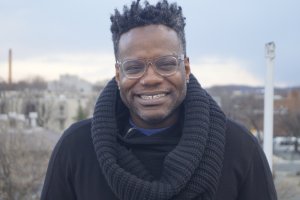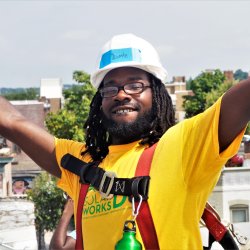My allergies are constantly reminding me that we’re in the late stages of spring and May is right around the corner. May holds special significance as Mental Health Awareness Month, bringing light to an issue that’s often avoided or downplayed in the Black community.
We make mental health a core focus area in all of our job training programs. Why? Because creating career opportunities in solar starts by meeting community members where they are. Establishing a foundation of security and mental well-being is just as critical as developing technical career skills.
Unfortunately, there’s an unfortunate stigma around mental health in the Black community. Mental health issues aren’t talked about enough, especially among Black men. Many Black men (young and old) feel weak if they see a therapist or admit to seeing a therapist.
I understand where the thinking comes from. Society demands that Black men and women must be perfect. We’re judged harshly by the criminal justice system, by our neighbors, and by people that have never even met us. Showing our feelings feels like imperfection.
The stigma surrounding mental health, however, is extremely damaging. As a result, Black people feel more reluctant to talk about their mental health with trained professionals and with family and friends. Thus, Black men and women often resort to other unhealthy methods to cope.
Mental health became a barrier for me during the COVID-19 pandemic. I’m a people person at heart. During lockdown, the lack of social interaction impacted ways that I would have never imagined. Those factors, compounded with the grief that came from losing friends and family members due to COVID-19, led to me making regular appointments with a therapist for the first time.
Therapy helped me understand that it’s OK to not be OK. I gained a better understanding of my own triggers and barriers as a result. When I realized I could ask for help, I felt relieved. Because even though Black people are expected to be perfect, we’re human. All of us need support.
If you are dealing with mental health issues, please reach out to a therapist if you can. If you don’t have insurance, or your insurance doesn’t cover mental health resources, you can utilize resources offered by the DC government or by Medicaid.
If you have thoughts of suicide, please reach out to the Suicide Hotline by dialing 988. You do have options, and your life has meaning.
Please make your mental health a priority, this month and every month.
Warmest Regards,
Elijah Perry


